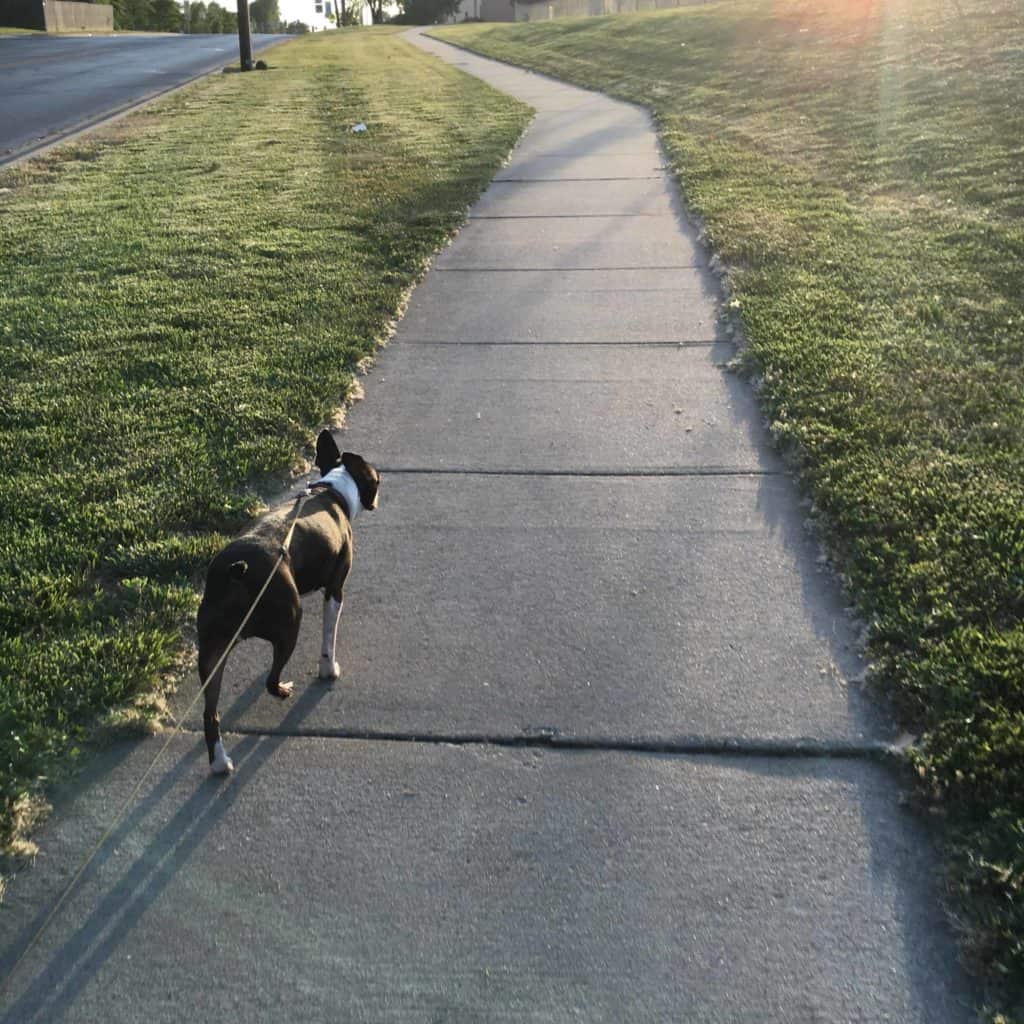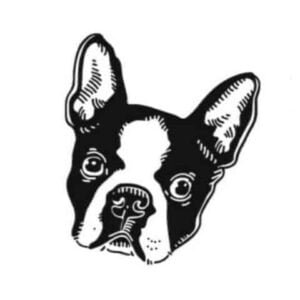Dogs are members of our family, and we couldn’t live without them. However, there is one problem. You can see places in the yard where she has urinated on the grass, the grass is a different color, or the grass is dead in small areas. There must be some solution to keep a lawn from going bad. The greener your yard is, the worst the random brown spots will show up.
I personally never knew dog urine could kill the grass. Until one summer Bella peed consistently in one spot and the grass began to die. The brown spot began to grow larger and larger. The terrible thing is we live in a townhome, and it was my neighbor’s side of the lawn. I was able to stop this by simply ensuring she rotated peeing in different areas of the yard.

Why Does Dog Urine Kill Grass?
A dog’s urine has a certain pH level. Dogs have a slightly acidic urine pH of between 6 and 6.5. The higher the pH level, the more alkaline it is. This is what causes the lawn to have the “burn” spots. You may notice more of those spots if your dog is a female rather than a male. Female Boston’s will squat in one place where your male Boston may spread the love around the yard, so to speak.
Can you Treat the Urine?
Yes, you can give your dog enzyme supplements that are supposed to lower the pH levels in the dog’s urine. This is a balancing act, however. If the pH level is too low, this can cause your Boston to develop calcium oxalate stones. To ensure good health of your lawn as well as your pooch, you should have your pet’s urine pH approximately 6.5, and no higher than 7.
I don’t know about you, but I’m not going to measure my Boston’s pH level in her urine from day to day. For those of us who do not want to add these supplements to your dog’s diet, there are other options.
Creating a Potty Place
Create an area of gravel or mulch for your dog to learn to do their urinating in. It may be wise to hire a landscape professional to design a space for your Boston to do her business. Your landscape professional will create an area that is both functional for your Boston and beautiful from a landscape point of view.
The area will be lined with either rock or mulch and will protect your lawn while creating an ample enough space for your Boston. Keep this area clean. If the spot gets too soiled, your dog may look to relieve itself somewhere else.
Training to go in one place
You can also teach your Boston to find a place where no one sees. Get them in the habit of going there. And she will use that place once she gets in the pattern.
Training your Boston to go in one place when she is used to going where ever she wants will take a great deal of patience and time on your part. You will have to be diligent each and every time your Boston has to go outside.
The best idea is to lead your Boston on her leash to the area where she is supposed to go. Say a cue word or sentence such as, “It’s time to go potty.” When your dog goes in the right spot, make sure your praise her and even give her a treat. Keep the rest of the yard off limits until your dog catches on.
Fixing Your Lawn
Use a hose to dilute the urine after the dog is finished. You can always spray down the places where your dog urinates, and this should neutralize the urine and prevent the browning of the yard. This may get a tad bit taxing following your dog around to ensure you are catching all the places your dog urinates, but it will work.
Lawn Types that Stay Most Hardy Against Dog Messes
Several native kinds of grass stand up to dog urine. These grasses are acclimated to the area in which you live and are hardier. They need very little care and multiply under almost every condition.
We all love our Dog’s. They are family, but they are tough on our lawns. The following native grasses are suggestions of solutions to end your brown grass problem.
Vesque grass
Vesque grass is a “urine hardy” grass and will stand up to most dogs’ urine. When landscaping, this is the grass to buy for your backyard area. This may be an expensive change-over, but a new turf may be well worth the expense in the long run, especially if you plan on always having a dog.
Inland Saltgrass
If you leave near the west coast, Inland Saltgrass is a very hardy grass that will withstand just about anything your dog can do. If a bare patch is left, this grass will quickly recover. Saltgrass is a favorite for livestock management because it is drought tolerant, resistant to trampling, and withstand the soil acidification from urine. This grass is perfect for lawns when the home has dogs as members of the family.
Blue Wild Rye
Blue Wild Rye is what makes up some of the combinations of many sports turfs. And for a good reason. It is hardy grass and can withstand wear and tear. This grass is useful when reseeding burned and torn up portions of your yard. Blue Wild Rye easily outcompetes other grass types, meaning any bare patches left by your Boston’s playing or urinating won’t last for long.
Kentucky Bluegrass
Kentucky Bluegrass is known to be pretty resistant to just about anything a dog can do, but depending on where you live, it may not be quite as hardy as the Rye grass. You might mix the two, with a combination suggested of 8:2. This is 8 parts Bluegrass and 2 parts Rye, and that should be the hardiness you need to resist whatever your Dog can do to your lawn.
Final thoughts…
Even with the most resistant of lawn grasses, you still have to maintain your yard and make sure you are watering appropriately and fertilizing the lawn when you are scheduled to do so.
Having a dog is the best. However, no one wants ugly brown spots in their back yard or any part of their yard for that matter, due to dog business here and there. There are several solutions as detailed above to choose from.
Perhaps the most healthy and easiest prevention to brown spots on your lawn may be to walk your Boston each time she has to go outside. This way, you get in exercise, and the dog urine is spread in other places besides your yard. You could take a spray bottle and spray the spot as a courtesy. In any case, managing a green lawn takes discipline and diligence on your part and lots of love for your Dog.
References:
- Healthy Pets – Dog Urine Kills Grass
- Pet MD – Keep Pee From Ruining Your Lawn
- K9 of Mine – Best Grasses For Dogs
